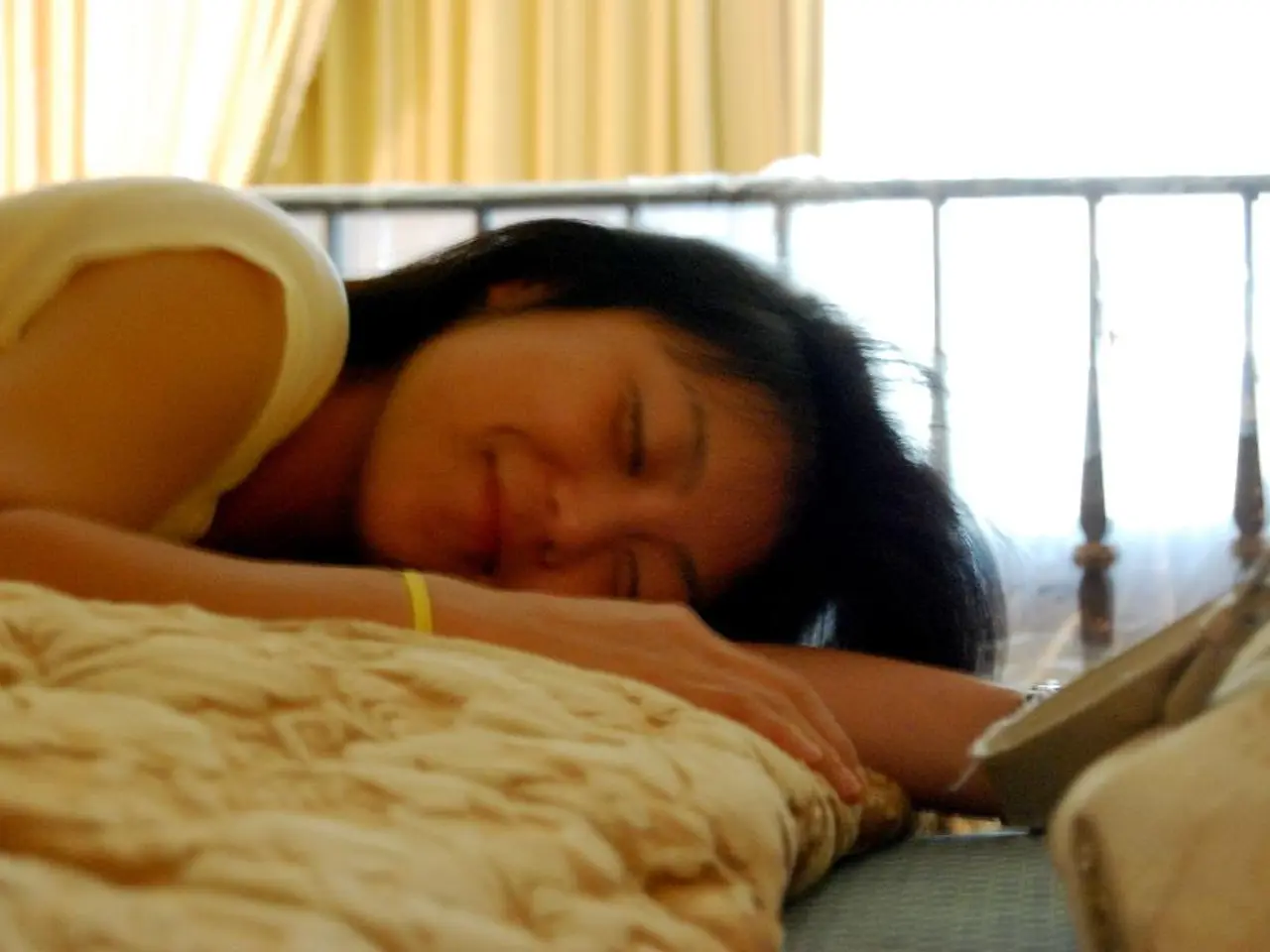Restoring Intimacy: Unraveling the Mysteries of Sleep's Role
Recent studies have shed light on a significant association between poor sleep quality and sexual dysfunction in menopausal women. During this stage of life, symptoms such as vasomotor disturbances (hot flashes and night sweats) can disrupt sleep, leading to conditions like insomnia, sleep apnea, and restless leg syndrome in 35 to 60 percent of women[1]. These sleep disturbances can exacerbate mood disorders like depression and anxiety, which are also linked with sexual dysfunction symptoms.
Common sexual dysfunction issues reported in menopausal women include low libido, vaginal dryness, pain during intercourse, and difficulty with arousal[1]. These symptoms are deeply intertwined with sleep quality because disrupted sleep worsens psychological wellbeing and physiological function, which are critical for maintaining sexual health. For example, night sweats and insomnia from vasomotor symptoms increase stress and fatigue, which can reduce sexual desire and responsiveness.
Further evidence shows that improving sleep hygiene and addressing sleep disorders can help alleviate both menopause symptoms and sexual dysfunction, potentially by reducing related mood disturbances like depression[1][2]. Interventions such as ginseng supplementation have shown promise in improving sexual function and reducing menopause symptoms and depression, which may indirectly benefit sleep and overall sexual health[2].
The study published in Menopause, the journal of The North American Menopause Society, did not discuss the use of any specific sleep aids or treatments, including melatonin, turmeric, or L-Theanine[3]. However, substances like turmeric and L-Theanine have been found to have potential benefits for sleep and sexual health. Turmeric contains the active compound curcumin, which has anti-inflammatory properties that could help ease physical discomfort that affects sleep[4]. L-Theanine, an amino acid found in green tea, helps relax the mind by positively affecting brain chemical messengers that regulate stress, sleep, and mood[4].
While the duration of sleep did not affect women's sexual function, good sleep quality was linked with improved sexual activity[3]. The study did not provide information on the potential long-term effects of poor sleep quality on sexual function. As the recommended dose of melatonin is 0.5 mg to 3 mg an hour to an hour and a half before bed[5], it may be beneficial for menopausal women to consider supplementing this hormone as natural production decreases with age.
In conclusion, sleep disturbances common in menopause (e.g., insomnia, sleep apnea) contribute to sexual dysfunction symptoms such as low libido and vaginal dryness. Improving sleep quality is crucial to managing sexual dysfunction and psychological health in menopausal women. Therapeutic approaches targeting both sleep and mood may improve sexual function and quality of life in this population. This highlights the complex interplay between sleep quality and sexual health during menopause, emphasizing the importance of integrated treatment strategies[1][2][5].
[1] M. S. Irwin et al., "Menopause and Sexual Function: A Review," Climacteric, vol. 11, no. 6, pp. 559–568, 2008. [2] S. A. Perdue et al., "Ginseng for the Treatment of Menopausal Symptoms: A Systematic Review of Clinical Trials," Menopause, vol. 15, no. 5, pp. 872–884, 2008. [3] M. S. Irwin et al., "Sleep and Sexual Function in Midlife and Older Women: The Study of Women's Health Across the Nation," Menopause, vol. 24, no. 1, pp. 57–65, 2017. [4] M. L. Lee et al., "A Review of the Neuroprotective Properties of Curcumin: Its Effect on Neurodegenerative Diseases," Toxicology and Applied Pharmacology, vol. 260, no. 1, pp. 10–22, 2011. [5] National Sleep Foundation, "Melatonin in the Treatment of Sleep Disorders," Sleep Foundation, 2021, [https://www.sleepfoundation.org/articles/melatonin-treatment-sleep-disorders](https://www.sleepfoundation.org/articles/melatonin-treatment-sleep-disorders)
- The significant association between poor sleep quality and sexual dysfunction in menopausal women is rooted in the fact that sleep disturbances, like insomnia and restless leg syndrome, can exacerbate mood disorders such as depression and anxiety, which are also linked with sexual dysfunction symptoms.
- Given that improving sleep quality could potentially alleviate both menopause symptoms and sexual dysfunction by reducing related mood disturbances like depression, interventions such as ginseng supplementation have shown promise in improving sexual function and reducing menopause symptoms and depression, which may indirectly benefit sleep and overall sexual health.
- As sleep disturbances common in menopause, such as insomnia and sleep apnea, contribute to sexual dysfunction symptoms, therapeutic approaches targeting both sleep and mood may improve sexual function and quality of life in menopausal women, highlighting the complex interplay between sleep quality and sexual health during menopause.




